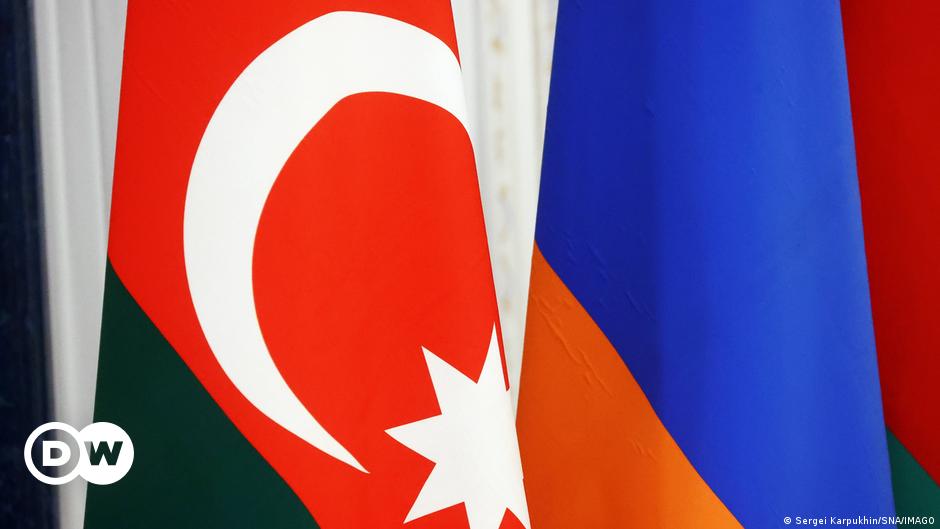The foreign ministers of Armenia and Azerbaijan were due to hold peace talks in Berlin on Wednesday, five months after thousands of ethnic Armenians fled the Nagorno-Karabakh region.
Germany is hosting the meeting to resolve a conflict between the Caucasus neighbors that has lasted for decades.
Why is the meeting taking place now?
The meeting of Armenia’s Ararat Mirzoyan and Azerbaijan’s Jeyhun Bayramov follows a surprise direct meeting between the leaders of both countries on the sidelines of the Munich Security Conference earlier this month.
The two countries had issued a joint statement in December saying they wanted to reach a peace deal.
German Chancellor Olaf Scholz mediated the talks in the Bavarian capital, where Armenian Prime Minister Nikol Pashinyan and Azerbaijani President Ilham Aliyev agreed to press ahead with the peace negotiations.
Scholz’s spokesman said the leaders had pledged to resolve differences “exclusively through peaceful means and without the use of force.”
German Foreign Minister Annalena Baerbock traveled to the two countries in November and called for new peace talks to take place.
Despite the apparent goodwill, the situation remains fraught, with Armenia reporting earlier this month that Azerbaijan’s military killed four of its soldiers along the heavily guarded border between the two.
What is the situation in Nagorno-Karabakh?
The Armenian-majority region broke away from Azerbaijan in a war in the 1990s, but its independence was not recognized by any country, including Armenia.
A Russian-brokered cease-fire after a war in 2020 saw Azerbaijan regain areas surrounding Nagorno-Karabakh that ethnic Armenian forces had held.
Azerbaijan retook Nagorno-Karabakh in September 2023, and most of the territory’s residents fled to Armenia. Yerevan has accused Baku of “ethnic cleansing,” while Azerbaijan argues that ethnic Armenians left voluntarily.
rc/wd (Reuters, AFP)
While you’re here: Every Tuesday, DW editors round up what is happening in German politics and society. You can sign up here for the weekly email newsletter Berlin Briefing.


